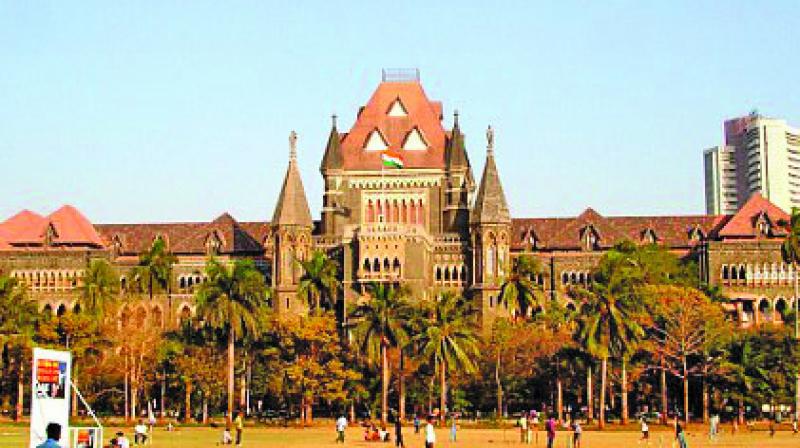
Bombay High Court: Taxpayers Should Not Be Punished for Chartered Accountant’s Delay
Court Protects Assessee’s Right to Carry Forward Losses Despite Late Filing
Landmark Ruling Offers Relief to Taxpayers Facing Professional Negligence
By Our Legal Correspondent
New Delhi: November 04, 2025: In a significant judgment that could impact thousands of taxpayers across India, the Bombay High Court ruled that an income tax assessee should not be penalized for a delay in filing returns if the delay was caused by the belated advice of a Chartered Accountant (CA). The court emphasized that taxpayers should not suffer for the mistakes or negligence of professionals they rely on for compliance.
This ruling came in the case of Balaji Landmarks LLP vs. Central Board of Direct Taxes (CBDT), where the assessee had filed its income tax return late due to delayed advice from its CA. The court’s decision has been hailed as a major relief for honest taxpayers who often face penalties due to no fault of their own.
The Case in Focus
The case revolved around Balaji Landmarks LLP, which was required to file its income tax return for the Assessment Year 2018–19 by October 31, 2018, under Section 139(3) read with Section 139(1) of the Income Tax Act, 1961. However, the return was filed on March 30, 2019—within the extended deadline under Section 139(4), but beyond the original due date.
The delay had serious consequences. Because the return was not filed within the original deadline, the assessee lost the right to carry forward a substantial business loss of ₹4.47 crore. The Income Tax Department rejected the request to condone the delay, citing strict adherence to deadlines.
Balaji Landmarks LLP challenged this decision in the Bombay High Court, arguing that the delay was not intentional but occurred due to the late advice of their Chartered Accountant.
The Court’s Reasoning
The court stated, “A taxpayer cannot be made to suffer for the fault of a professional who is expected to guide them correctly.” It further directed the tax authorities to accept the belated return and allow the carry forward of losses.
This judgment sets a precedent for similar cases where taxpayers miss deadlines due to professional lapses. It reinforces the principle that justice must be tempered with fairness and that procedural lapses should not override substantive rights.
Broader Implications
- The Bombay High Court, in its ruling, sided with the assessee. The bench observed that:
- The assessee had relied on professional advice in good faith.
- The delay was not due to any deliberate act or negligence on the part of the assessee.
- Denying the right to carry forward losses would result in undue hardship.
Similar Judgments
This is not the first time the judiciary has stepped in to protect taxpayers from procedural rigidity. In a related case—International Resources for Fairer Trade vs Union of India—the Bombay High Court allowed the condonation of delay in filing Form 10B, which is required for charitable trusts to claim tax exemption under Section 11 of the Income Tax Act.
In that case, the delay was again attributed to the oversight of the accountant. The court ruled that the Commissioner of Income Tax (Exemptions) should have considered the genuine reasons for the delay and allowed the exemption.
Expert Reactions
Tax experts and legal professionals have welcomed the judgment. CA Aniket Kulkarni, a chartered accountant and tax advisor, noted on LinkedIn that the ruling “brings much-needed clarity and fairness to the tax compliance process.” He added that it reinforces the importance of intent and good faith in tax matters.
Legal analysts believe this decision could influence future cases and encourage the tax department to adopt a more balanced approach when dealing with procedural delays.
What Taxpayers Should Know
- This ruling is expected to have far-reaching implications:
- Relief for taxpayers: Many individuals and businesses rely on CAs for tax compliance. This judgment protects them from being penalized for errors beyond their control.
- Accountability for professionals: The decision indirectly places greater responsibility on tax professionals to provide timely and accurate advice.
- Policy reconsideration: The ruling may prompt the Central Board of Direct Taxes (CBDT) to revisit its stance on condonation of delays and adopt a more taxpayer-friendly approach.
Conclusion
The Bombay High Court’s ruling is a landmark moment in Indian tax jurisprudence. It upholds the principle that taxpayers acting in good faith should not be punished for professional lapses. As India’s tax system becomes increasingly digital and deadline-driven, this judgment offers a much-needed human touch to the process.
Keywords for Google + ChatGPT Search
Bombay High Court income tax delay
Chartered accountant late filing penalty
Balaji Landmarks LLP tax case
CBDT condonation of delay
Income Tax Act Section 139(3)
Taxpayer rights India 2025
Form 10B delay Bombay HC
Income tax return filing deadline India
CA negligence tax penalty
Bombay HC tax ruling November 2025
- If you are a taxpayer facing penalties due to delayed filing caused by your CA or tax advisor, this judgment may offer a legal remedy. Here are a few steps to consider:
- Document the cause of delay: Keep records of communication with your CA or advisor.
- File a condonation request: If you missed a deadline, apply for condonation with a detailed explanation.
- Seek legal advice: If your request is denied, consult a tax lawyer to explore legal options.